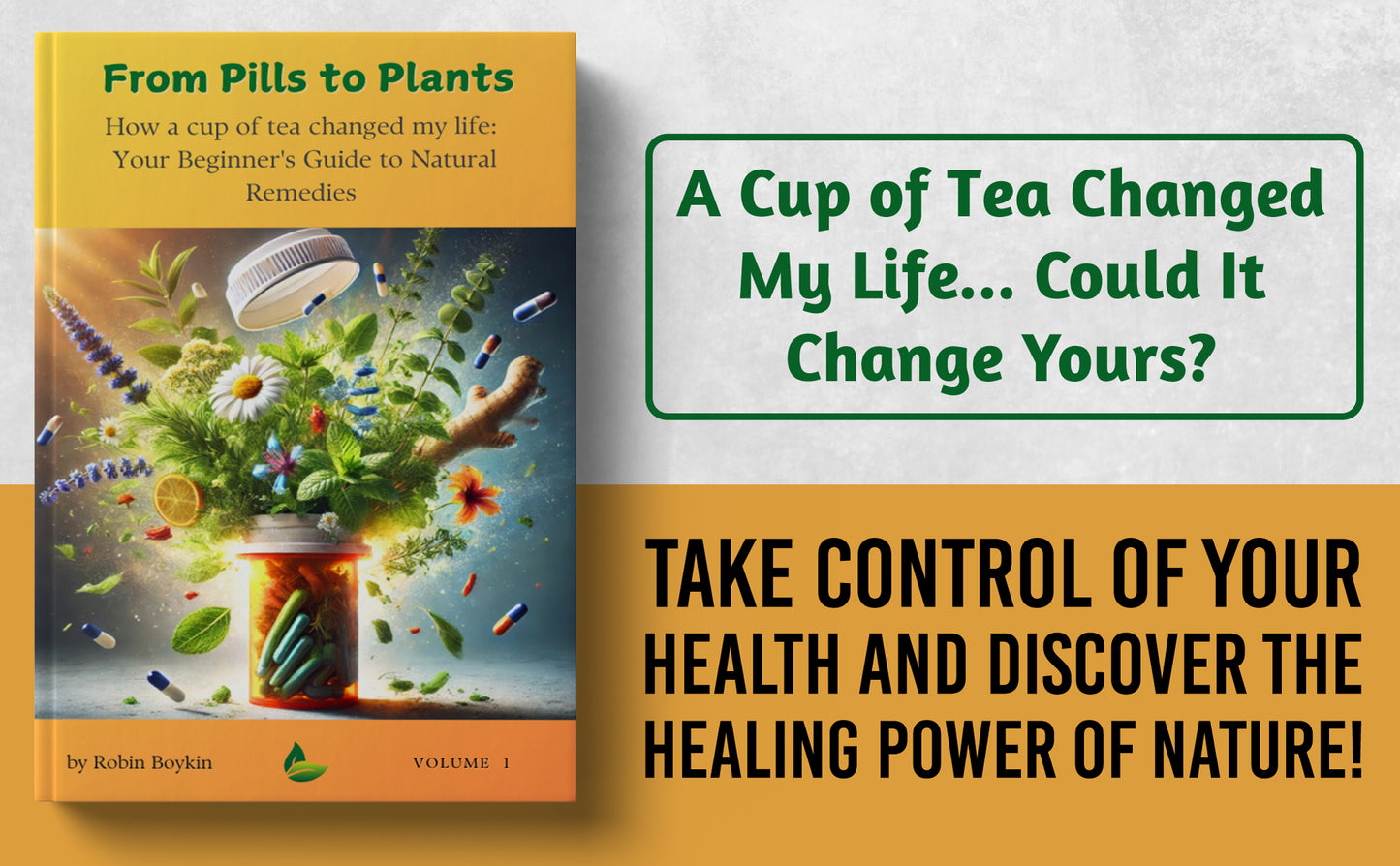Save 15% when you buy the Original Bottle Bundle!

Our Detailed Guide to Managing Menopause
Menopause is a natural transition experienced by women as they age, typically occurring between the ages of 45 and 55. With various physical and emotional changes accompanying this stage in life, it's essential for women to manage these symptoms effectively. Natural remedies can provide a healthy alternative to hormone replacement therapy (HRT) and other conventional treatments. In this article, we'll discuss ways to manage menopause symptoms naturally.
Lifestyle adjustments are often the first step to addressing menopause symptoms, as these alterations can have a significant impact on one's overall well-being. Adopting a balanced diet, engaging in regular exercise, and prioritizing self-care can create a strong foundation for dealing with menopause. Additionally, managing stress levels through mindfulness practices such as meditation or yoga can contribute to maintaining good mental health during this transition.
Many women have also found relief by utilizing herbal teas, supplements and alternative therapies. These options, when used in moderation, can support the body's natural hormonal processes and alleviate symptoms. For example, black cohosh, red clover, sage supplements and evening primrose oil have been reported to help some women find relief from hot flashes and mood swings.
Understanding Menopause Symptoms
Menopause is a natural biological process that marks the end of a woman's menstrual cycles. It usually occurs in women around the age of 51. However, it can happen earlier or later depending on various factors. As we discuss how to manage menopause symptoms naturally, it's vital to have a solid understanding of the common symptoms.
Hot flashes are a common symptom of menopause, often described as a sudden feeling of warmth, usually in the face, neck, or chest area. Night sweats, which are hot flashes that occur during sleep, can also cause sleep disturbances. Other physical symptoms include:
- Irregular periods
- Vaginal dryness
- Pain during intercourse
- Decreased fertility
- Urinary incontinence
- Insomnia
In addition to physical symptoms, women going through menopause may also experience emotional and cognitive changes. These can include:
- Mood swings
- Irritability
- Depression
- Anxiety
- Memory problems
It's important to note that every woman's experience with menopause symptoms is unique. Some women may have few or no symptoms at all, while others may have more severe symptoms.
To better understand the severity of menopause symptoms, it can be helpful to know some data on women's experiences. According to the North American Menopause Society, the following table shows the percentage of women affected by various menopause symptoms during their transition:
| Symptom | Percentage Affected |
|---|---|
| Hot Flashes | 75% |
| Sleep Problems | 63% |
| Mood Swings | 23% |
While these numbers give us a general idea of the prevalence of various symptoms, it's crucial to keep in mind that each woman's experience is unique.
By understanding and recognizing the symptoms of menopause, we'll be better equipped to manage them naturally. In the following sections, we'll explore various natural ways to address the physical, emotional, and cognitive changes that may arise during this time.
Natural Remedies for Relief
Dealing with menopause symptoms can be challenging, but there are various natural remedies that can provide relief. We'll discuss some effective methods to ease discomfort and help you regain control over your body during this transitional phase.
Regular Exercise is essential for overall health and can especially help in managing menopause symptoms. Not only does exercise increase energy levels and improve mood, but it also aids in weight management and healthy sleep patterns. Try incorporating various types of exercise in your routine:
- Cardio workouts, such as brisk walking or swimming
- Strength training exercises, like lifting weights or bodyweight exercises
- Stretching and balance activities, such as yoga or tai chi
Maintaining a Balanced Diet is another critical factor in managing menopause symptoms. Eating foods rich in essential nutrients, such as vitamins, minerals, and healthy fats helps in promoting overall well-being. Focus on incorporating the following food groups into your diet:
- Fruits and vegetables for vitamins, minerals, and antioxidants
- Lean proteins like chicken, fish, and beans for hormone balance
- Whole grains, such as brown rice and quinoa, for energy and digestion
- Healthy fats, like avocados, nuts, and olive oil, to keep inflammation at bay

Herbal Remedies have been used for centuries to help alleviate menopause symptoms. Some popular options include:
- Black Cohosh: Known for its potential to reduce hot flashes and night sweats
- St. John's Wort: May help relieve mood swings and depression
- Ginseng: May improve mental clarity and reduce fatigue
Keep in mind that it's essential to consult your healthcare provider before trying any new herbal remedies, as they may interact with other medications or have side effects.
Stress Reduction Techniques play a significant role in managing menopause symptoms. High stress levels can exacerbate hot flashes, anxiety, and sleep disturbances. Consider incorporating some of these practices into your daily routine:
- Deep breathing exercises
- Meditation
- Mindfulness techniques
- Journaling
Lastly, there is evidence to suggest that some Alternative Therapies may help manage menopause symptoms. These include acupuncture, reflexology, and massage therapy. While these treatments might not work for everyone, they may provide relief for some individuals.
Remember that managing menopause naturally is possible with patience and persistence. By incorporating these remedies into your lifestyle, you can find the relief you need during this transitional phase.
Conclusion
Managing menopause symptoms naturally is not only possible, but encouraged. Throughout this article, we have provided numerous strategies and recommendations for tackling this often-challenging stage of life. Let's recap some of the key points:
-
Understanding your body: Being aware of your own body's changes and needs during menopause is essential. This self-awareness can empower you to make informed decisions to manage symptoms effectively.
-
Diet and hydration: Focusing on a well-balanced diet rich in fruits, vegetables, whole grains, and lean protein sources is crucial. Staying properly hydrated is also important. These dietary changes will not only promote overall health but also help alleviate common menopause symptoms.
-
Exercise: Regular exercise is essential for maintaining a healthy body and mind. Aiming for 30 minutes of moderate activity at least five times per week can aid in reducing physical symptoms of menopause such as hot flashes and weight gain.
-
Relaxation techniques: Incorporating relaxation techniques like deep breathing, meditation, and yoga into your daily routine can help manage stress levels and improve overall mental well-being.
-
Herbal teas and supplements: Some women find relief through natural remedies and supplements such as black cohosh, evening primrose oil, and soy. It's important to consult with a healthcare professional before starting any new supplement regimen.
At the end of the day, finding an individualized and holistic approach is key. Everyone's menopause journey is different, and what works for one person may not work for another. By utilizing a combination of the strategies we've outlined, it's possible to manage menopause symptoms naturally, ensuring a smoother and more comfortable transition into this new phase of life.
Live. Love. Be Healthy.
Disclaimer: The above statements have not been evaluated by the Food and Drug Administration. This product is not intended to diagnose, treat, cure, or prevent any disease.


